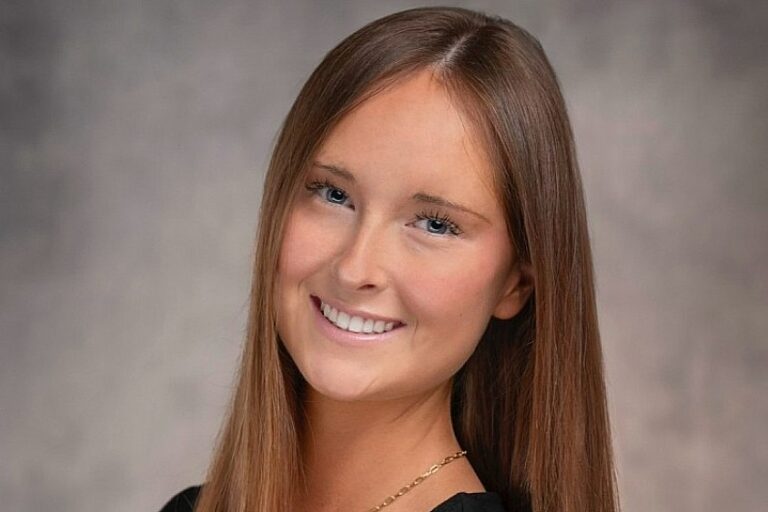Grace Carney, a second-year student in WRAC’s minor in writing, is using her passions for mental health advocacy and writing to empower and encourage those struggling with mental health problems with her new project, Life Letters.
Life Letters is an organization where people who have overcome mental health difficulties can write letters to those who are struggling, providing them with support and showing them that they are not alone. The Cube (publishing – process – praxis) is developing Life Letters’s website, which will allow users to submit letters anonymously. Letters will then be thoroughly vetted by a committee of trained volunteers, and participants can request to anonymously receive letters filtered by topic. Through this process, participants have the opportunity to process their emotions through writing, and their letters can further encourage others.
Carney says that the idea for Life Letters came from her own struggles with mental illness and how she turned toward writing to understand and heal. “It’s based on the foundation of journaling to process emotions. What we’re asking is for people who have gone through some struggles with mental health to talk about those struggles and how they overcame them and share that information [with] people who are looking to be reminded that they are strong enough to get through this.”
Because Life Letters was inspired by her own mental health journey, Carney knows how effective writing can be as a coping mechanism. “I actually wrote a book my sophomore year of high school about my personal struggles with mental health, and… just talking about it helped me through a lot of things. Then I published it to the world, and a few people told me that it helped them as well. I figured that anyone could do this—just talk about their experiences with mental health and then inspire other people to keep pushing through it.”
Currently, Carney and a Cube team headed by graduate assistant Ceili Widmann and including undergraduate interns Isabelle Derocher and Aiden Tomkinson are focused on designing the website, which will launch live in Summer 2022. They are also building a volunteer committee to review submissions and requests for letters. Carney says she is deeply grateful for the support from The Cube, which is funding the website and connecting her with the resources she needs to launch the project.
Ultimately, Carney hopes that Life Letters will be able to provide its own professional mental health resources, such as connecting users directly with mental health professionals, “so that people could just go to the website when they’re feeling alone and have an immediate resource.” She also has the goal of eventually allowing participants to submit a wider array of creative media, such as plays or paintings. “We’re hoping that this branch of art—writing—will branch out into other kinds of art, and that those will be able to inspire people in the same way our letters have.”
For now, though, Carney is committed to Life Letters helping those who have struggled with their mental health to cope through writing, and she gives a lot of credit to the writing minor in WRAC. It has allowed her to explore how writing can be valuable in her future career by providing her with tools and experiences to become an effective communicator, which she has found to be helpful when pursuing her goals in mental health advocacy.
“Of course, having the experience is good, but being able to write about it in an effective way is so important. Being able to see into that artistic part of you that allows you to share those things with people is important, because once you find that it makes it easier to share your experiences.”
If you are interested in joining the Life Letters committee or sharing your experiences by writing a letter, you can find the organization on Instagram and Twitter @LifeLettersMI or email them at ProjectLifeLetters@gmail.com.

Kara MacKenzie (she/her) is a sophomore at Michigan State University majoring in Professional and Public Writing and Women’s and Gender Studies. She is the website and communications intern for WRAC, where she helps to create and implement engaging content campaigns that draw attention to people in WRAC and the amazing work they are doing. She is especially passionate about the intersections between rhetoric and social justice, and hopes to one day use her writing skills to benefit an organization that works toward positive social change.


